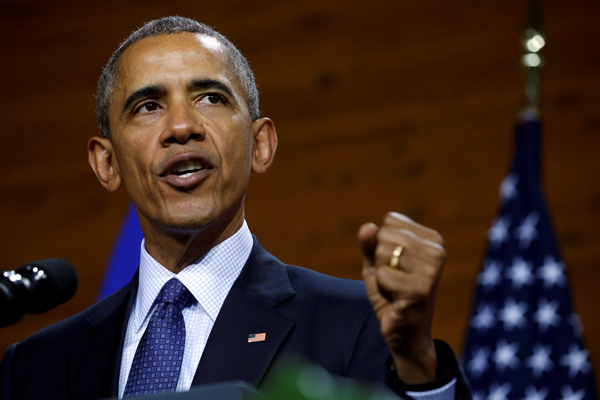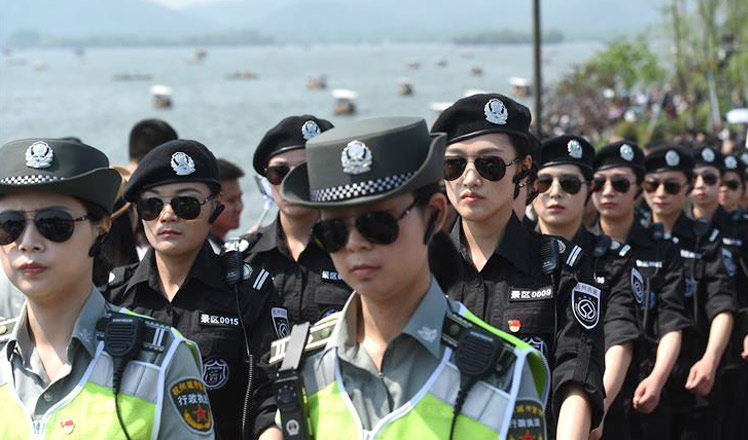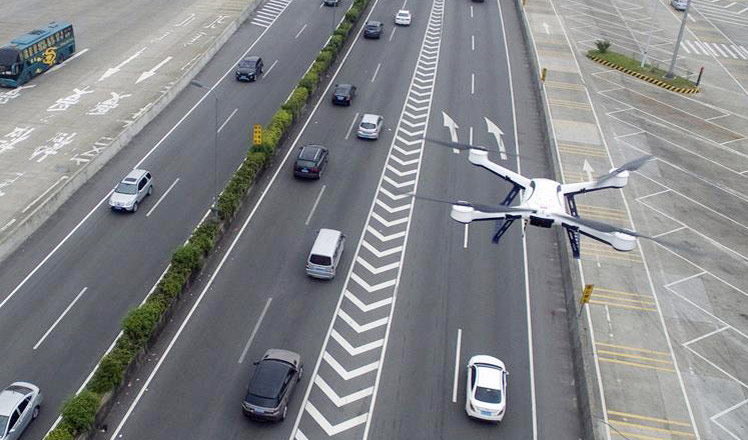US economic hegemony against world reality
Updated: 2016-05-05 07:35
(China Daily)
|
||||||||
 |
|
US President Barack Obama delivers a speech during his visit to Hanover, Germany April 25, 2016. [Photo/Agencies] |
Who should make the rules of trade for the Asia-Pacific, or indeed the entire world?
US President Barack Obama said on Monday in a written piece published in The Washington Post, "America should write the rules. America should call the shots."
He said that the rules of trade in the Asia-Pacific must be written by the United States, not China. He also criticized the Regional Comprehensive Economic Partnership which China is negotiating with the Association of Southeast Asian Nations and some other Asian countries as not following "American interests" the way the Trans-Pacific Partnership does.
Should all the trade deals involving any country follow the US' interests in this increasingly globalized world? Obviously Obama believes they should, and further, any trade deal should be operating in favor of the US' interests.
This belief is based on the US' deep-rooted mentality of economic hegemony, which is totally contrary to the reality of today's world, at least in terms of economic development.
It is a pity that the US president chose to ignore the interests of all other people on Earth.
It is all but impossible for a single country to write the rules of trade for the development of a region or the world just to feather its own nest without ever taking into consideration the interests of its trade partners.
China has never pursued such a scenario and is strongly against such economic hegemony.
Instead, China, at which Obama pointed his finger, believes that the core principle for economic cooperation with other countries is for all parties involved to benefit on an equal basis.
The balanced and sustainable development of the global economy depends on a more equal and fair world economic order, which requires the participation of all major economies in its governance, not just the developed nations.
The G20's transition from a gathering of financial ministers and central bankers to that of the leaders of the world's major economies epitomizes the changes occurring in global economic governance. It also points to the fact that the day is gone when a single country could dominate the world economic order.
True, the US is still the most powerful country in the world. But it is impertinent, even wrong for the US and its leader to assume that the country can still impose its will onto the rest of the world by forcing them into accepting the rules it has made.
The world will not buy such hegemony.
- Massive protests against Abe mark Japan's Constitution Memorial Day
- Go kitesurfing in Israel
- 500 million people at risk of contracting Zika in Americas: PAHO official
- UN urges DPRK to stop 'further provocative action'
- China stresses Putin's expected visit
- British FM visits Cuba for 1st time since 1959

 Olympic flame lands in Brazil for 94-day relay to Games
Olympic flame lands in Brazil for 94-day relay to Games
 Top 10 least affordable cities to rent in
Top 10 least affordable cities to rent in
 Exhibition of Tibetan Thangka painting held in Lhasa
Exhibition of Tibetan Thangka painting held in Lhasa
 Storm's aftermath is a pink petal paradise
Storm's aftermath is a pink petal paradise
 Xinjiang-Tibet Highway: Top of the world
Xinjiang-Tibet Highway: Top of the world
 Female patrol team seen at West Lake in Hangzhou
Female patrol team seen at West Lake in Hangzhou
 Drones monitoring traffic during May Day holiday
Drones monitoring traffic during May Day holiday
 Sino-Italian police patrols launched in Italy
Sino-Italian police patrols launched in Italy
Most Viewed
Editor's Picks

|

|

|

|

|

|
Today's Top News
Liang avoids jail in shooting death
China's finance minister addresses ratings downgrade
Duke alumni visit Chinese Embassy
Marriott unlikely to top Anbang offer for Starwood: Observers
Chinese biopharma debuts on Nasdaq
What ends Jeb Bush's White House hopes
Investigation for Nicolas's campaign
Will US-ASEAN meeting be good for region?
US Weekly

|

|









